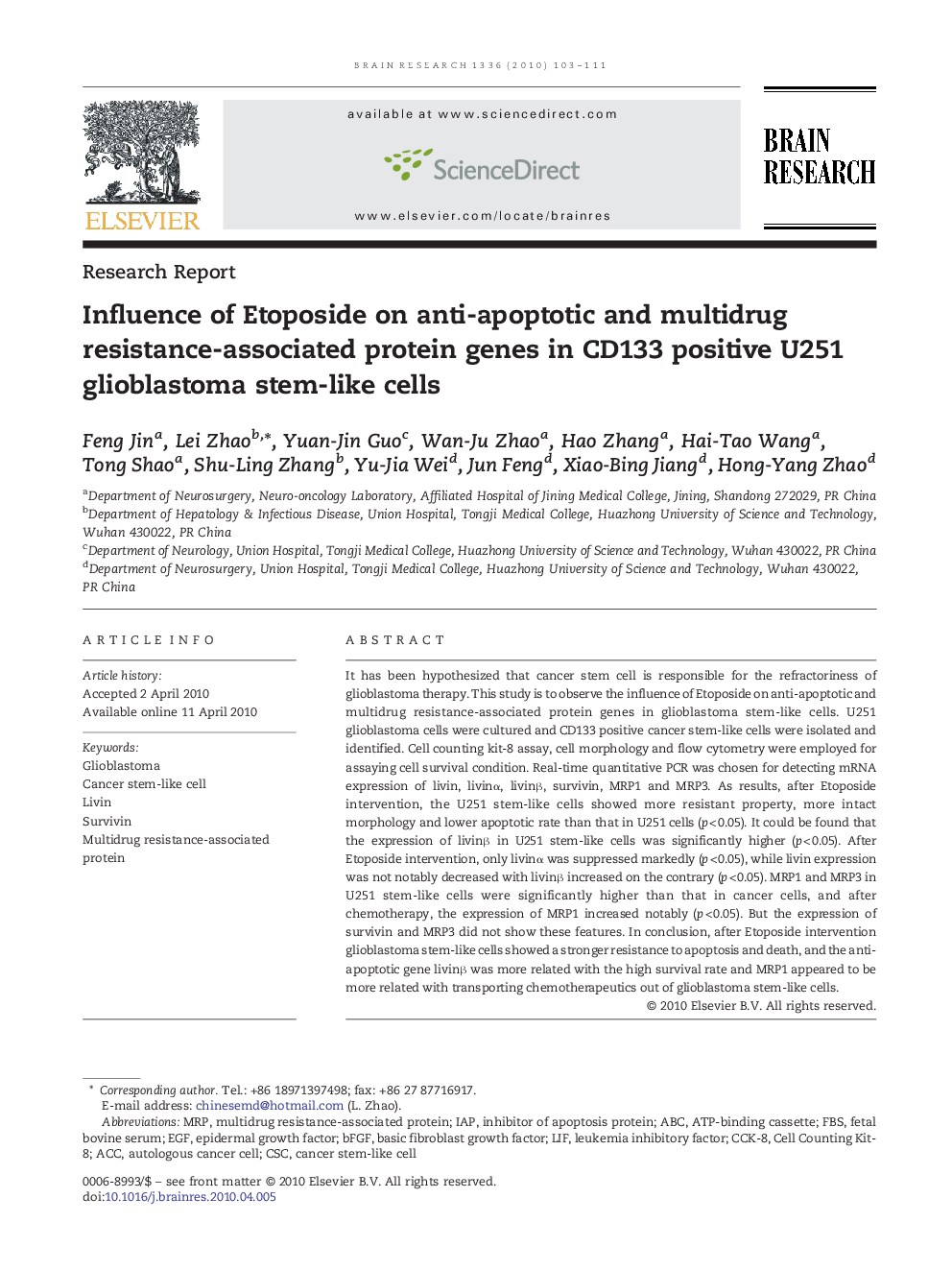| Article ID | Journal | Published Year | Pages | File Type |
|---|---|---|---|---|
| 4326966 | Brain Research | 2010 | 9 Pages |
It has been hypothesized that cancer stem cell is responsible for the refractoriness of glioblastoma therapy. This study is to observe the influence of Etoposide on anti-apoptotic and multidrug resistance-associated protein genes in glioblastoma stem-like cells. U251 glioblastoma cells were cultured and CD133 positive cancer stem-like cells were isolated and identified. Cell counting kit-8 assay, cell morphology and flow cytometry were employed for assaying cell survival condition. Real-time quantitative PCR was chosen for detecting mRNA expression of livin, livinα, livinβ, survivin, MRP1 and MRP3. As results, after Etoposide intervention, the U251 stem-like cells showed more resistant property, more intact morphology and lower apoptotic rate than that in U251 cells (p < 0.05). It could be found that the expression of livinβ in U251 stem-like cells was significantly higher (p < 0.05). After Etoposide intervention, only livinα was suppressed markedly (p < 0.05), while livin expression was not notably decreased with livinβ increased on the contrary (p < 0.05). MRP1 and MRP3 in U251 stem-like cells were significantly higher than that in cancer cells, and after chemotherapy, the expression of MRP1 increased notably (p < 0.05). But the expression of survivin and MRP3 did not show these features. In conclusion, after Etoposide intervention glioblastoma stem-like cells showed a stronger resistance to apoptosis and death, and the anti-apoptotic gene livinβ was more related with the high survival rate and MRP1 appeared to be more related with transporting chemotherapeutics out of glioblastoma stem-like cells.
